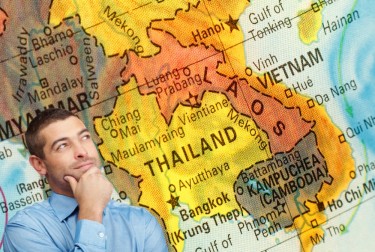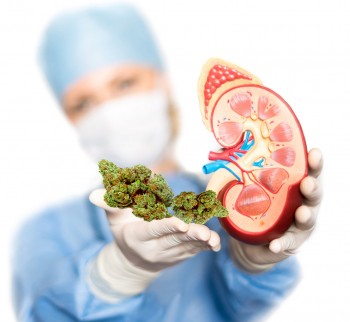
Cannabis Backlash Gains Steam Heading Into Thailand’s Election
Thailand's legalization of cannabis last year, encompassing cultivation, possession, distribution, sale, and consumption, was swift and comprehensive. Marijuana dispensaries have since increased rapidly, particularly in tourist hotspots nationwide. In certain regions, such as the capital, they have become ubiquitous.
Despite the discouragement of recreational use, cannabis remains legal. The industry has been allowed to expand with relative freedom, subject to regulations such as age restrictions and prohibitions on public smoking.
Thailand's parliament was dissolved before the scheduled enactment of the Cannabis Act due to the general election on May 14th. As drug usage remains unregulated, the issue has become increasingly divisive politically and among the wider community. In the run-up to this weekend's election, cannabis has ignited an intense political debate. Parties strive to distinguish themselves from one another to sway voters with deeply held views.
Most leading candidates agree that increased regulation is necessary to manage the cannabis industry. Still, the specifics of what that would entail and how it would be implemented are not uniform. Pita Limjaroenrat, the prime ministerial candidate for the Move Forward Party, supports the controlled cultivation and use of cannabis but advocates for its reclassification as a narcotic to facilitate more effective oversight.
During a campaign rally this month, he stated that they do not endorse cannabis for recreational use, nor do they endorse an unregulated cannabis market. He clarified that they only support the use of cannabis with appropriate control measures in place, particularly for medicinal purposes. The benefits of cannabis use must outweigh any potential harm in all respects.
"Reclassify cannabis as a narcotic and implement measures to ensure that it generates more benefits than harm," stated the Pheu Thai Party, which hopes to establish the government. Despite initially voting in favour of cannabis legalization, the party has shifted its focus to stricter drug policies during the campaign season.
"We are unequivocally opposed to the complete legalization of cannabis. Pheu Thai Party does not wish to align itself with any political party advocating full cannabis legalization. Our sole objective is to make cannabis available for medicinal use," declared Srettha Thavisin, one of the party's prominent prime ministerial candidates, in a televised political debate.
The Northeast Region: A Strong Base for The Bhumjaithai Party.
The political tumult may appear remote in Buriram, but its echoes are felt intensely. This province has been unofficially crowned as the cannabis hub of the nation. The Bhumjaithai Party, led by Anutin Charnvirakul, the deputy prime minister and minister of public health, was responsible for legalizing cannabis. Established in 2008, the party's stronghold is firmly rooted in Buriram, owing to the political clout of local magnate Newin Chidchob.
The Bhumjaithai Party has extensive community connections in Thailand's northeast, particularly in Buriram, making it a formidable adversary for competing parties seeking to establish a presence in the Esan area. In the previous election, Bhumjaithai secured 51 seats and became a crucial junior partner in the government coalition with the Palang Pracharat Party and its former leader, Prime Minister Prayut Chan-o-cha.
The party aims to increase its seats by more than two-fold this time, largely dependent on the impetus generated by its successful implementation of pro-marijuana policies. However, Anutin has reiterated that the party's stance is to maintain control over cannabis.
In a letter addressed to his opponent Srettha of Pheu Thai, Anutin of the Bhumjaithai Party reiterated the party's stance against the recreational use of marijuana. It emphasizes that it focuses on regulating its misuse and supporting its use for medical, health, and economic purposes.
The Bhumjaithai Party's popularity in this election could again place Anutin in a significant position to shape the government and open up new leadership opportunities for him. As the party that championed cannabis legalization, Bhumjaithai's success in the election could determine the future of businesses involved in cannabis cultivation and sales in the Buriram region, depending on the party's post-election negotiations.
A Possible Reversal
Ann Khoonoram established the first cannabis dispensary in Buriram, a modest shop offering a limited cannabis range. At first, she stated that the local populace regarded her store warily, but her business has grown steadily.
She is concerned that the election's outcome could jeopardize her operation. Ann hopes the government allows dispensaries to keep their business running, especially for those who have already established our shops. She wants the laws to be unambiguous and consistent regarding their direction.
Worapot Kotcharat, a farmer who cultivates rice and cannabis in Buriram, agrees with Ann. No one can ever be certain about the future. They may reverse the decision and make it illegal again. "If the laws change, I will have to accept it," he says. He agrees that the cannabis matter is a sensitive one.
According to farmers in the area, cannabis legalization in the country cannot be reversed now, regardless of which party takes power. They believe so because many people have already made a significant amount of investment.
Siwasan, a local cannabis grower, believes that reversing the legalization of cannabis would be nonsensical and unrealistic, regardless of the election outcome. However, she acknowledges that strict regulations could challenge farmers who may need to adjust to the new circumstances.
The truth is that marijuana laws have advanced far beyond the point where a major party may claim they want marijuana to be classed as a drug. Concerning Pheu Thai's stance on cannabis, Siwasan doubts that they would be willing to take on the new generation of entrepreneurs who have already made significant investments in this industry.
Conclusion
According to political analysts in Buriram, the Bhumjaithai Party is expected to perform well in the local elections when the polls close on Sunday. Despite a tight race between the party and Pheu Thai Party in many regions nationwide, the locals are anticipated to re-elect the Bhumjaithai candidates who have previously served them in parliament.
He predicts that the ongoing cannabis discussion, despite garnering widespread attention across Thailand, will have little impact on the local population, who are more focused on economic concerns and are expected to support Bhumjaithai in the upcoming election strongly.







